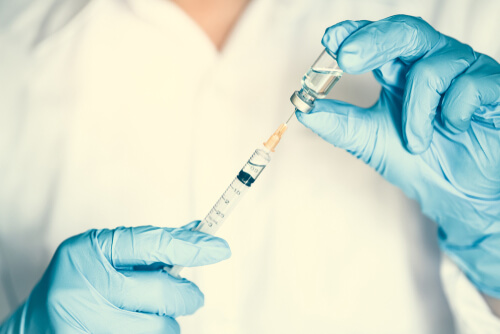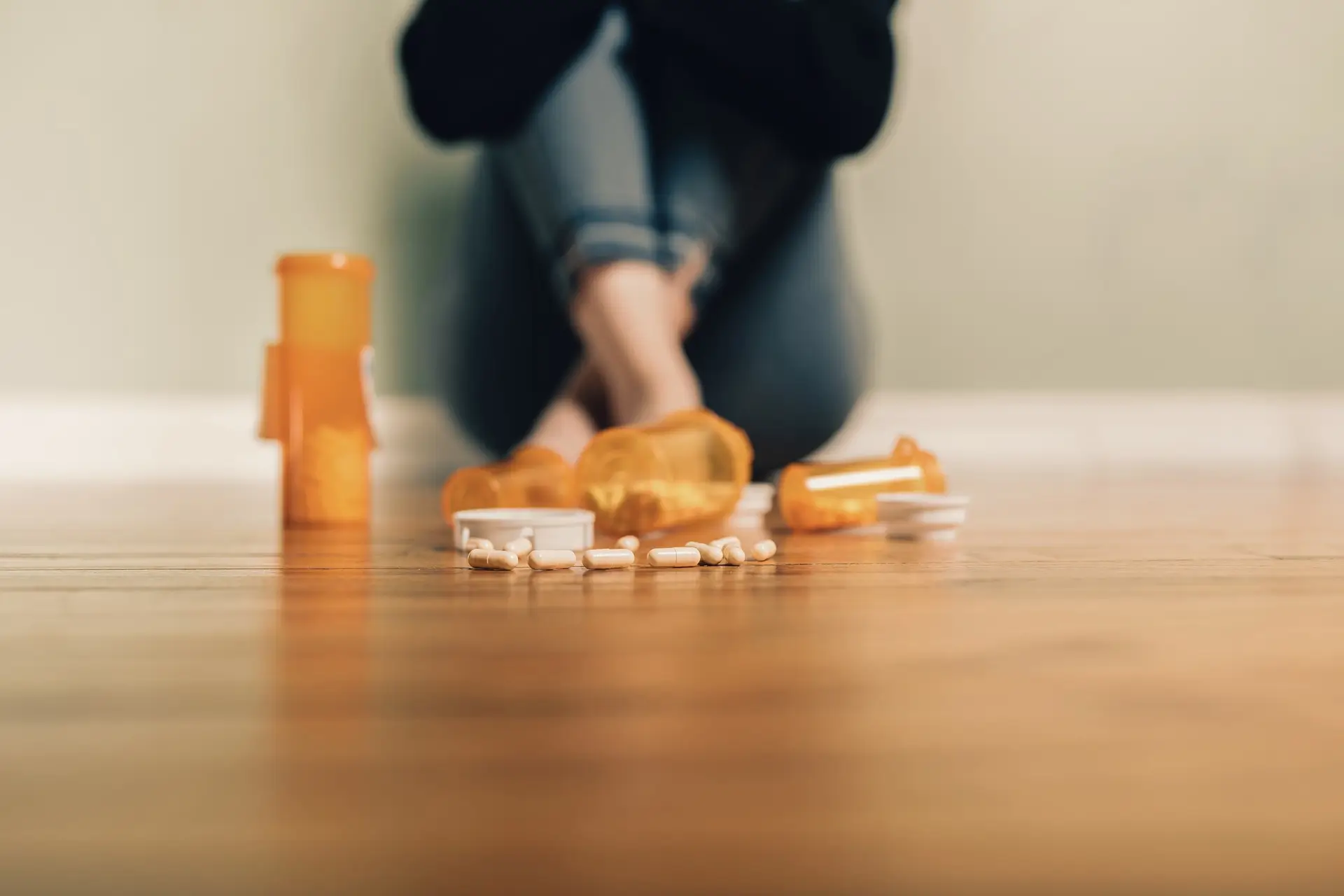
If a medication has harmed you or a loved one, we understand the profound distress and uncertainty you’re facing. At our drug injury law firm in Atlanta, we offer compassionate support and legal expertise to work through these complex and emotional challenges.
Our Atlanta drug injury lawyer team is here to help, so you’re not suffering alone.
Drug injuries can drastically alter lives, leading to severe health complications, long-term pain, and significant disruptions in daily living. We offer a free consultation to discuss your case and explore how we can assist you in your journey towards recovery and justice.
Your well-being is our priority, and we are here to guide you every step of the way.
Do You Have a Case?
Determining whether you have a valid personal injury claim involves assessing several critical elements. Here’s a detailed overview of what needs to be present for a successful claim:
- Duty of Care: Everyone has a legal obligation to ensure others’ safety. For example, drivers must drive safely, and doctors must provide proper care. Your claim needs to show that the responsible party owed you this duty.
- Breach of Duty: This occurs when someone fails to meet the expected standard of care. For example, speeding drivers or doctors may make errors that breach their duty.
- Causation: You must prove that the breach directly caused your injury. This includes showing both that the breach led to your injury and that the injury was a foreseeable result of the breach.
- Damages: You need to show that you suffered damages due to the breach. This can include medical costs, lost wages, and pain and suffering. The amount of damages affects the compensation you can receive.
Each of these elements must be thoroughly established to build a strong case. If you believe you have been wronged and are unsure if you meet these criteria, consulting with an Atlanta personal injury attorney can clarify and guide you through the legal process.
Damages You Can Recover
When pursuing a personal injury claim, damages fall into three main categories: economic, non-economic, and punitive. Here’s a detailed overview of each:
1. Economic Damages: Economic damages compensate for the financial losses incurred due to the injury. They are tangible and can be quantified with specific figures. These typically include:
- Medical Expenses: Costs for treatment and care.
- Lost Wages: Income lost during recovery or due to disability.
- Future Earnings: Projected income loss if the injury affects long-term earning potential.
- Property Damage: Costs for repairing or replacing damaged property.
2. Non-Economic Damages address the intangible impacts of an injury that are not easily measured in financial terms:
- Pain and Suffering: Compensation for physical pain and emotional distress endured as a result of the injury.
- Loss of Consortium: Damages for the negative impact on relationships with a spouse or family members, often due to the injury’s effect on intimacy and companionship.
- Emotional Distress: Reimbursement for mental anguish, anxiety, depression, and other psychological impacts resulting from the injury.
3. Punitive Damages are awarded over and above economic and non-economic damages and serve to punish the defendant for particularly egregious behavior and to deter similar conduct in the future. These damages are less common and typically apply in cases involving:
- Gross Negligence: Actions demonstrating a severe lack of care or reckless disregard for others’ safety, such as driving under the influence.
- Intentional Wrongdoing: Situations where the responsible party deliberately intended to cause harm or malicious intent.
Each type of damage addresses different aspects of the harm suffered and is important in seeking fair compensation you deserve.
If you have been injured and are unsure of the damages you might be eligible for, consulting with an experienced attorney can help clarify your potential recovery and guide you through the legal process.
Who Can Be Held Liable?
Determining who can be held liable depends on the nature of the case and the parties involved. Here’s a detailed look at who might be responsible in various situations:
1. Manufacturers:
- Product Liability: If a defective product causes injury, the product manufacturer can be held liable. This includes issues related to design flaws, manufacturing defects, or insufficient warnings.
- Pharmaceutical Companies: In cases involving defective drugs, prescription drugs, or medical devices, pharmaceutical companies may be held accountable for the harm caused by their products.
2. Pharmacists:
- Medication Errors: Pharmacists can be liable if they dispense incorrect medication or dosages, fail to provide proper instructions, or neglect to warn patients about potential drug interactions or side effects.
- Negligence in Medication Management: If a pharmacist’s error in managing a patient’s medication regimen leads to harm, they may be held responsible.
3. Hospitals and Healthcare Facilities:
- Medical Malpractice: Hospitals can be liable for negligence if their staff, including doctors and nurses, fail to meet the standard of care. This includes errors in diagnosis, treatment, or surgical procedures.
- Facility Negligence: Hospitals may also be held liable for unsafe conditions or inadequate maintenance that leads to patient injuries.
4. Doctors and Medical Professionals:
- Clinical Negligence: Doctors, surgeons, and other medical professionals can be held liable for errors in treatment, misdiagnoses, or failure to provide appropriate care.
- Failure to Obtain Informed Consent: If a medical professional fails to fully inform a patient about the risks of a procedure or treatment, they may be held accountable for any resulting harm.
5. Employers can be held responsible for the actions of their employees conducted within the scope of their employment. This is often applicable in cases involving workplace injuries or negligence by employees.
6. Drivers and Vehicle Owners: In motor vehicle accidents, drivers can be held liable for causing harm through negligence, such as speeding, driving under the influence, or failing to follow traffic laws. Vehicle owners may also be held liable in certain situations, particularly if the driver operated the vehicle with their permission.
7. Property Owners can be held liable for injuries occurring on their property due to unsafe conditions, such as slip and fall accidents, inadequate security, or failure to maintain the premises.
8. Government Entities may be held liable in cases involving accidents or injuries on public property or caused by government employees. However, special rules and limitations often apply to suing government bodies.
9. Contractors and Subcontractors can be held liable for injuries resulting from unsafe construction sites or negligence in maintaining safe working conditions.
How to Get in Touch With Us
What Clients Think of Us
Our clients consistently appreciate the dedication and support they receive from our team. Here’s what a few of them have shared:
Genuinely Care
“I have been a client of Brauns Law Firm on more than one occasion, and he has never disappointed me! Even from the initial intake process you can see a genuine level of personal care, and concern right down to therapy, doctors appointments, as well as those follow-ups; that has always been a real priority to him! And his staff is exceptional as well!”
– Felisha Ikeh
Highly Recommend
“I had an amazing experience working with Haley at Brauns Law. Her communication skills were exceptional; she kept me informed every step of the way and always responded promptly to any questions or concerns I had. Thanks to her efficient handling of my case, everything was settled quickly and smoothly. I highly recommend Haley and Brauns Law to anyone in need of legal assistance.”
– Skye Fitzpatrick
Brauns Law Firm: Drug Injury Law Firm in Atlanta
At Brauns Law Firm, we’re more than just a legal team—we’re your dedicated advocates in the fight against drug injuries. Recognized for our exceptional legal services and client-centered approach, we strive to offer the highest level of representation and support.
Experiencing a drug injury can be a deeply distressing and confusing time. When a medication intended to improve your health causes harm instead, it’s more than just a physical issue—it can shake your sense of trust and well-being.
We are here to champion your cause and guide you through every step of your legal journey.
Meet Your Atlanta Drug Injury Attorney
What to Do After Suspecting a Drug Injury in Atlanta
If you suspect that a drug or medication has harmed you, Immediate action can help you receive the appropriate medical care and gather essential evidence for any potential claims.
Here’s what you should do:
- Call the police and file a report
- Collect and preserve evidence
- Obtain medical attention for any injuries
- Document all symptoms and treatments
- Consult with an experienced lawyer
- Contact your insurance company
- Review and organize all medical records
- Keep a detailed record of all communications related to the case
- Follow up on the progress of your case
- Consider seeking a second medical opinion, if necessary
An expert drug lawyer in Atlanta from our firm can guide you through your defective drug case in more detail as part of the free initial consultation. Contact us today!
Deadlines For Injured Victims to File a Claim
In Georgia, you generally have two years from your injury to file a personal injury claim, including those from car accidents. The statute of limitations sets this timeframe.
Note that the deadline might be extended if the injured person was a minor or the responsible party was not identified, however, you can’t rely on exceptions to give you more time.!
For personalized advice and to protect your rights, contact us as soon as possible.
Gathering Evidence For a Drug Lawsuit
Building a strong drug injury case requires collecting key evidence, even when dealing with the challenges of a drug-related injury. Here’s what you should gather:
- Medical Records: Include details on injuries, treatments, and side effects from hospitals, doctors, and specialists.
- Police Documentation: Obtain official records and reports related to the incident.
- Eyewitness Statements: Collect statements and contact information from witnesses.
- Photo/Video Evidence: Document visible injuries, damaged property, and relevant conditions.
- Examples of Negligence: Show improper drug labeling, dosage errors, or lack of warnings.
- Product Information: Gather packaging, labeling, and manufacturer details.
- Prescription Records: Verify prescription details and usage.
- Communication Records: Keep copies of interactions with healthcare providers, pharmacies, or drug manufacturers.
- Financial Records: Track medical expenses and lost wages.
Managing this evidence can be overwhelming, especially if there’s, unfortunately, been a wrongful death or severe pharmaceutical injuries.
That’s why an Atlanta dangerous drugs attorney from our firm can relieve you of this burden and gather evidence on your behalf. Contact us today to find out how!
What Can I Expect to Pay?
At our firm, we use a contingency fee model, which means you don’t pay upfront legal fees. Here’s how it works:
- No Win, No Fee: You only pay legal fees if we successfully secure compensation for you. Our fee is a percentage of the settlement or award we obtain on your behalf. You don’t owe us anything if we don’t win your case.
- No Upfront Costs: There are no initial costs or retainer fees required to start your case. This approach ensures that you can focus on your recovery without worrying about legal expenses.
- Additional Costs: While you don’t pay upfront, other costs may be associated with your case, such as court fees or expenses for obtaining medical records and expert testimony. These costs are typically discussed and clarified during your initial consultation.
- Transparent Pricing: During your initial consultation, we will clearly explain our fee structure and any potential costs, ensuring you understand what to expect.
Our goal is to make the legal process as accessible as possible, allowing you to pursue your claim without financial strain. If you have any questions about our fees or how the contingency fee model works, please reach out to us for more information.
Why Choose Us Over Other Atlanta Drug Injury Attorneys?
When dealing with the aftermath of a drug-related injury, finding the right legal representation can make all the difference. At our firm, we stand out from the rest for several key reasons:
- Proven Track Record: With a history of successful outcomes and significant settlements, our results demonstrate our commitment to achieving the best possible results for our clients.
- Expertise in Drug Injury Cases: Our firm specializes in drug injury claims, offering deep knowledge and experience in navigating the complexities of pharmaceutical litigation.
- Personalized Approach: We provide tailored legal strategies for each case, ensuring that your unique circumstances are thoroughly addressed and your rights are fiercely protected.
- Client-Centered Service: We prioritize clear communication, empathetic support, and diligent representation throughout your case, making sure you feel heard and supported every step of the way.
Choose us for dedicated, knowledgeable, compassionate legal representation in your drug injury case.

General Information on Drug Injuries in Atlanta
Drugs That Our Radar is On
Pharmaceuticals linked to severe health issues and fatalities are a critical concern. Our Georgia dangerous drug attorneys collaborate with experts to establish whether a drug was improperly designed, manufactured, or marketed and to confirm that it is the primary cause of your health problems.
Common drugs involved in litigation include:
- Cholesterol-Lowering Drugs: Associated with muscle pain, kidney failure, and death.
- Diabetic Medications: Linked to liver damage, heart, and kidney issues.
- Arthritis and Pain Relievers: Tied to heart attacks, strokes, high blood pressure, and gastrointestinal problems.
- Anti-Depressants: Connected to liver damage and death.
- Antipsychotics: Associated with hyperglycemia and diabetes.
- Opioid Painkillers: Issues with over-prescription and incorrect prescribing.
Notable drugs in lawsuits include Avandia®, Bextra®, Baycol®, Celebrex®, Celexa®, Meridia®, Rezulin®, Ultram®, Vioxx®, Zofran®, and Zyprexa®. Some drugs may not reveal harmful symptoms until it’s too late for effective treatment. Reviewing your medications for known risks is imperative!
The Existence of Dangerous Drugs in the Local Market
The Food and Drug Administration (FDA) must approve drugs before they are sold. This process is strict, and many drugs are never approved because they are too risky or unsafe.
When dangerous drugs make headlines, people often wonder how they passed FDA approval and ended up on the market. Sometimes, drug companies hide important information or downplay side effects. They might not conduct thorough tests or may even delay reporting problems once a drug is on the market.
Common Types of Drug Injuries in GA
Drug-related injuries can vary widely, but here are some of the most common types observed in Georgia:
- Cardiovascular Issues: Including heart attacks, high blood pressure, and stroke are often linked to medications like certain pain relievers and antidepressants.
- Liver Damage: Resulting from drugs like specific anti-diabetic medications and anti-inflammatory drugs.
- Kidney Problems: Including kidney failure, which can be a side effect of cholesterol-lowering medications and some pain relievers.
- Gastrointestinal Issues: Such as ulcers, bleeding, and severe abdominal pain, frequently associated with non-steroidal anti-inflammatory drugs (NSAIDs).
- Neurological Problems: Including dizziness, seizures, and cognitive impairments, commonly reported with some antidepressants and antipsychotic medications.
- Allergic Reactions: Severe allergic responses that can cause rashes, swelling, and anaphylaxis are seen with various prescription and over-the-counter drugs.
- Psychiatric Effects: Such as severe mood swings, depression, or psychosis, often linked to certain antipsychotic and antidepressant drugs.
- Muscle and Joint Pain: Associated with some cholesterol medications and other drugs.
A Focus on Drug-Induced Liver Injury (DILI)
Injury to the liver can result from physician-prescribed drugs, over-the-counter medications, vitamins, herbs, hormones, illicit (recreational) drugs, and environmental toxins.
Liver Function
The liver is one of the largest organs in the body, weighing an average of three pounds. It is located in the right, upper abdomen, below the diaphragm.
Three key metabolic functions of the liver include:
- It converts the nutrients in our diets into substances the body can use
- The liver stores the substances for future use
- The liver supplies cells with the substances when needed
This vital organ also converts toxins into harmless substances or releases them from the body. Along with Vitamin K, the liver produces essential proteins that regulate blood clotting. The liver also destroys old and damaged blood cells.
Risk Factors for DILI
Adults are more at risk of developing a drug-induced liver injury than children. Women face a higher risk due to the fact they are generally smaller than men. Researchers believe two conditions predispose a patient to DILI: alcoholism and malnutrition. In addition, patients who overdose on acetaminophen (Tylenol) can also cause liver damage.
Why isn’t drug-induced liver injury caught earlier in the drug approval process? Before receiving FDA approval, fewer than 3,000 people receive the trial drug. The true scope of DILI isn’t known until the drug is widely available, making it difficult to gauge the danger of a drug before widespread use.
Types of DILI
Here are just a few conditions resulting from a drug-induced liver injury:
- Hepatitis (inflammation of liver cells)
- Fulminant hepatitis (severe, life-threatening liver failure)
- Necrosis (death of liver cells caused by severe hepatitis)
- Cirrhosis (advanced scarring of the liver)
- Blood clots in the veins of the liver
- Simultaneous diseases, like Hepatitis and Necrosis
- Cholestasis (decreased secretion and/or flow of bile)
- Steatosis (accumulation of fat in the liver)
Physician-prescribed drugs or herbal supplements that damage the liver do so silently. Many patients with mild liver disease experience few or no symptoms. Nonspecific symptoms (ones seen in other diseases) include fatigue, loss of appetite, weakness, and mild abdominal pain.
For those with more advanced liver diseases, symptoms may include jaundice (yellowing of the skin), itching, and easy bruising. Symptoms of severe, advanced liver disease include edema (swelling) and mental confusion. Vulnerability to bacterial infections and gastrointestinal bleeding are also possible symptoms of severe and advanced liver disease.
Locations We Serve
- Atlanta
- Cumming
- Decatur
- Duluth
- Gwinnett County
- Lawrenceville
- Peachtree Corners
- Stone Mountain
- Suwanee















